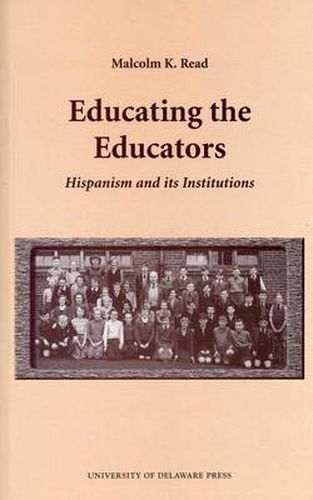Readings Newsletter
Become a Readings Member to make your shopping experience even easier.
Sign in or sign up for free!
You’re not far away from qualifying for FREE standard shipping within Australia
You’ve qualified for FREE standard shipping within Australia
The cart is loading…






Educating the Educators consists of two narratives. The first discusses the paradigmatic shifts that have taken place within British Hispanism in response to the historical development of capitalism, through its competitive, monopolistic, and global stages. At the ideological level, these shifts correspond to the transformation of the traditional intellectual into a state functionary and, ultimately, into a technician or ‘expert’, totally subsumed under capital and charged with the management of ‘cultural studies’. Running alongside, and locked into, this first narrative is a second, which, in the form of three autobiographical essays, traces the author’s long trek from his childhood origins in a working class family, through the institutions of education- and the experience of embourgeoisement- to his attempts, within the Australasian, Carribean, and North American academies, to retrieve the legacy of socialism. These two narratives are brought into symbolic relation through a theory of ideological production that explores the radicalizing effects of contradiction and conflict within the otherwise unconscious reproduction of social relations.
$9.00 standard shipping within Australia
FREE standard shipping within Australia for orders over $100.00
Express & International shipping calculated at checkout
Educating the Educators consists of two narratives. The first discusses the paradigmatic shifts that have taken place within British Hispanism in response to the historical development of capitalism, through its competitive, monopolistic, and global stages. At the ideological level, these shifts correspond to the transformation of the traditional intellectual into a state functionary and, ultimately, into a technician or ‘expert’, totally subsumed under capital and charged with the management of ‘cultural studies’. Running alongside, and locked into, this first narrative is a second, which, in the form of three autobiographical essays, traces the author’s long trek from his childhood origins in a working class family, through the institutions of education- and the experience of embourgeoisement- to his attempts, within the Australasian, Carribean, and North American academies, to retrieve the legacy of socialism. These two narratives are brought into symbolic relation through a theory of ideological production that explores the radicalizing effects of contradiction and conflict within the otherwise unconscious reproduction of social relations.